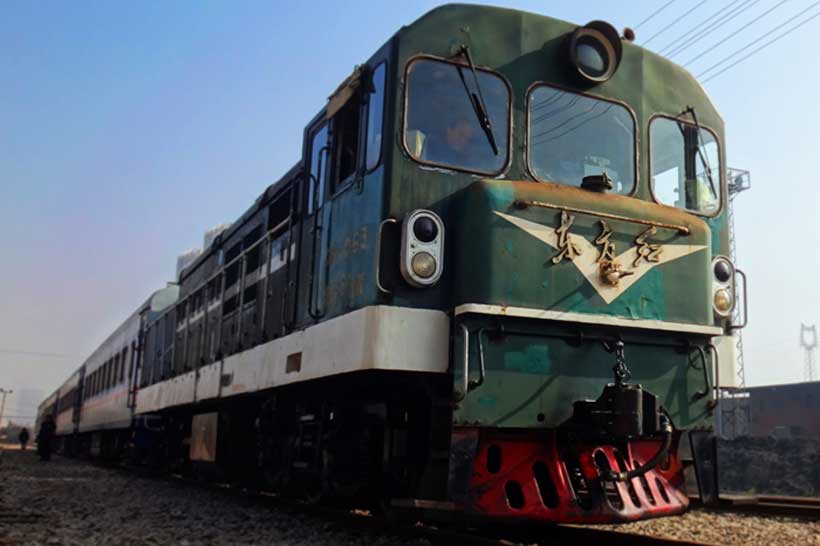The Bangladesh-China-India-Myanmar economic corridor (BCIM-EC) is a sub-regional initiative, earlier known as “Kunming Initiative”, or BCIM Regional Economic Cooperation, was established in August 1999 in Kunming, capital of China’s south-western Yunnan Province by the scholars from China, India, Bangladesh, and Myanmar.
Chinese Premier Li Keqiang proposed the BCIM-EC initiative during his visit to India in May, 2013. The Joint Statement between China and India officially proposed the establishment of the BCIM-EC, while later Bangladesh and Myanmar offered strong and positive responses towards the development of economic corridor across the sub-region.
The proposed BCIM economic corridor aims to construct a 2,800-km economic corridor connecting 20 major cities and towns of the BCIM countries. Starting from Kolkata, the capital of West Bengal, the corridor is planned to end in Kunming, capital of China’s Yunnan Province via Bangladesh’s Jessore, Dhaka, and Sylhet; Imphal of Manipur and Silchar of Assam in North Eastern part of India, and Myanmar’s Ka Lay, Monywa, Mandalay, Lashio and Muse.
The BCIM Forum was primarily initiated with the aim of building regional cooperation among the four participating countries as well as integrating the BCIM economies through building overland economic corridor along the routes connecting the sub-region of South Asia, Southeast Asia, and East Asia.
The overland connectivity aside, over the years, the objectives of the BCIM-EC expanded in the areas of poverty alleviation, people-to-people connectivity, cross-border energy trade, tourism, human resource development, sustainable development as well as trans-border security.
Significant progresses have already been witnessed towards the achievement of these objectives. As for example, starting from 1999 to 2015, total 12th BCIM Forums have been arranged by the BCIM countries. The idea of the construction of Kunming-Mandalay-Dhaka-Kolkata (K2K) economic corridor was first proposed in the 9th BCIM Forum held in Kunming, China from January 18 to 19, 2011, which marked significant milestone in the development of the economic corridor across the BCIM sub-region.
The 10th BCIM Forum held in Kolkata, India from February 18-19, 2012 was also crucial for taking the decision about the Kolkata to Kunming (K2K) Car Rally along the BCIM routes. As per the consensus, the historical Kolkata to Kunming (K2K) Car Rally in February 2013 was warmly received in four countries that underscored the construction of BCIM economic corridor across the sub-region.
Subsequent to these developments, strengthening the working relationship between Track II and Track I and the initiation of Track I diplomacy through the consensus in 9th Forum and the 11th BCIM Forum respectively injected noteworthy impetus into the development of multimodal connectivity across the BCIM sub-region.
So far, three Joint Study Group (JSG) meetings have been conducted among the representatives of the four countries to foster physical connectivity, facilitate trade in goods, services, and investment; promote economic integration; and also to enhance people-to-people contacts among the BCIM countries.
The 1st JSG was held in Kunming, China from December 18-19, 2013, while the initiative was undertaken for the official launch of intergovernmental process of BCIM-EC. The 2nd JSG held in Bangladesh’s Cox’s Bazar from December 17-18, 2014 gained momentum after the consensus of the four countries to prepare separate country reports on the concept, scope and elements; principles and modalities of cooperation; and framework of cooperation. And, during the 3rd JSG meeting which held on 24- 25 April 2017, in Kolkata, the four countries agreed on upgrading of the talks on BCIM-EC to the intergovernmental level.
The significance of the BCIM-EC is enormous. Geo-strategically, the economic corridor is the gateway to three sub-regions, South Asia, Southeast Asia, and East Asia. It is also the hub of blue economy and international maritime trade with the endowment of the Bay of Bengal and its adjacent areas, Indian Ocean, the Andaman and Nicobar Islands.
The geo-economic significance of the BCIM-EC is also immense. The BCIM sub-region with the enhanced transport connectivity can be a zone for international trade and business. The free flow of goods and services as well as cross-border trade and investment through the seamless connectivity will facilitate equitable sharing of benefits among the BCIM countries.
The proposed BCIM-EC attempts to build multimodal connectivity in order to accelerate all round development across the sub-region, goodwill, peace, and the stability in the sub-region based on the principles of mutual interest, trust and respect, and equitable sharing of benefits.
Though there is a prevalence of some security, economic, and political factors remaining as key challenges, the countries need to come up with concrete measures to fully tap the immense potentials of connectivity through the successful establishment of the BCIM-EC across the sub-region.


